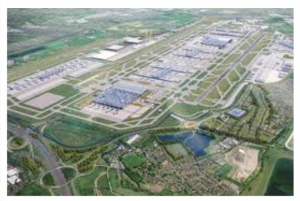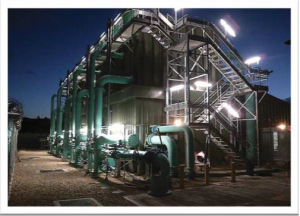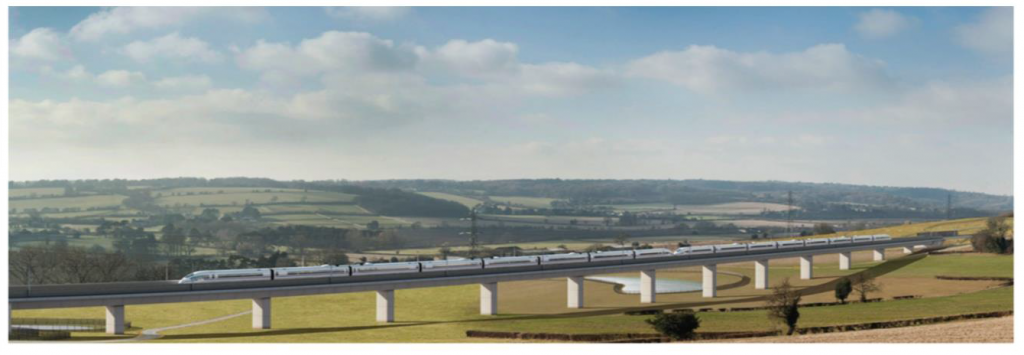“Capable Owners focus on value and outcomes rather than cost and outputs”
In September, CEOs and senior executives from the UK’s largest and most important infrastructure organisations met over dinner at the ICE. They discussed the challenges their businesses face as they seek to embrace major industry change. In particular, they considered the implications of Project 13, an industry initiative backed by the Infrastructure Client Group and supported by the ICE. Project 13 seeks to drive the transformation of the UK’s construction sector and create a better approach to delivering high performance infrastructure.
Conversations with leaders centered on the challenges for owner organisations as they strive to become what is known in Project 13 language as a Capable Owner. Capable Owners are infrastructure owners who focus on value and outcomes rather than cost and outputs. They collaborate with their supply chain with whom they work as a single integrated enterprise built on long term relationships. They share risk and champion the needs of the customer.
The necessity for industry change was evident to all present but there are a number of common themes with which leaders continue to grapple:
Championing the Cause
Following the launch of Project 13 there seems to be a real will in the industry to make a lasting change and to create an environment that releases the potential of owners, contractors and the wider supply chain. But to have any chance of a successful cultural change, CEOs felt the need for somebody (singular or plural, preferably the former) to take charge of persuading broader industry and government to adopt the recommendations of Project 13.
Old Habits Die Hard

So far, neither government nor Whitehall has taken note of the recommendations of Project 13 or learnt the lessons from the Carillion debacle and Balfour Beatty near miss. Government continues to insist that contracts are awarded based on the lowest price and minimum risk, driving damaging behaviours. In current difficult and uncertain times, Government clients are becoming ever more cautious of new approaches rather than embracing innovation. To address this reluctance, owner organisations increasingly need leaders at all levels with the ability to lobby stakeholders and ‘sell’ new or different approaches.
Male, Pale & Stale?
“To achieve change, stimulate innovation and achieve better outcomes, Owners must positively target and attract individuals from a broader base of backgrounds”
The Infrastructure sector, reflected in the entirely middle aged male audience at the dinner, remains woefully lacking in diversity. In an environment where new thinking is essential, perhaps the current crop of leaders are hardly qualified to ask, let alone answer, the critical questions facing the industry?. Owners and their supply chains must do more to actively engage and mobilise an increasingly varied and diverse audience and to seek the ideas, experiences and innovations from other industries and demographics. To achieve change, stimulate innovation and achieve better outcomes, Owners must positively target and attract individuals from a broader base of backgrounds as they recruit or build teams. If they don’t, the danger is that entrenched approaches, behaviours and outcomes are perpetuated and change is stifled.
Grow Your Own
Where public ownership of assets constrains pay or where other factors such as location or industry make recruiting a particular challenge, owners should build the capability to grow their own qualified talent, focusing on finding the right raw material and developing the ‘hard skills’ in in-house academies or through structured leadership development programmes Other industries such as the automotive and aerospace industries have been much more successful in lobbying government for funding for training. Here, where a raft of traditional craft skills have been commoditised or automated, these industries have been successful in developing the systems and technology skills that drive the value in their businesses. The fragmented Construction sector must do more to speak with one voice if it is to make the case to Government for similar investment.
Singing from the Same Song Sheet
As owners further understand their role in the delivery of high performance infrastructure and seek to create a harmonious relationship within the project enterprise, so they have to develop workable and pragmatic strategies for operating with the supply chain. If owners are to foster better relationships so contractors must recognise their obligations and achieve the necessary outcomes on time, budget and specification. Owners and their supply chains need to find mechanisms that reward both sides as well as take collective responsibility for mistakes. Together, the enterprise must find ways of increasing the use of standardisation, modularisation and off site construction and develop a range of mutually acceptable commercial arrangements that reward value delivered not work done.
 Early adopters such as Anglian Water through its @one alliance are already benefiting from a new approach
Early adopters such as Anglian Water through its @one alliance are already benefiting from a new approach
Defining the question.
“The Infrastructure /Construction industry is sure to face challenges from unexpected quarters”
The CEOs of most infrastructure owners are engineers. Many reach their positions having delivered major capital programmes or risen through the ranks of Tier 1 contractors. They are great at problem solving and dealing with technical challenges, they may not be so good at defining the need, asking the open questions and working out what outcomes, rather than outputs are required. Capable Owners recognise the need to consider the skills of their leadership throughout the life of the enterprise and ensure the right skills are in place as the enterprise moves from start-up, into construction and operation. Broader business leadership skills will be vital and may not necessarily be brought to the enterprise by leaders from an engineering background.
The Uberisation of Construction
The speed at which advances in technology are changing long established industries is frightening. Many well established businesses will not survive in today’s rapidly changing world – consider the impact of the Internet on the print media, retail and broadcast sectors. The Infrastructure/Construction industry is sure to face challenges from unexpected quarters. Disruptors who come from nowhere and without preconceptions or legacy will change the industry in which we work. Owners must do more to embrace innovation and create an environment in which the supply chain is empowered and incentivised to make the most of technological advances. In parallel, the sector must make it an attractive option for those with the latest digital skills and thinking. Without such people, achieving the necessary transformation will be doubly difficult and the people with the skills we need will continue to join the disruptors.

In Conclusion
So in conclusion, many of the solutions to the challenges facing CEOs of owner organisations boil down to the need for the industry to:
- Speak with a single voice and act in unison.
- Actively drive diversity and seek leaders with a broader base of experience and thinking.
- Create collaborative cultures, working practices and procurement approaches that extend across the entire enterprise.
- Invest in people, building those with the right aptitude through training and continuous professional development.
- Embrace technology and promote its potential in order to compete effectively for sort after digital skills.
- Let go of old ways and look beyond the sector for ideas and talent that can disrupt the status quo.
Change in the industry will be achieved through people, by shifting their thinking, overcoming ingrained beliefs and embracing new ideas. CEOs of owners and those in the supply chain will need to be bold and open-minded. They will need to identify leaders in their organisations with the right skills and attitudes to operate in a new regime and bring in fresh thinking and approaches from outside the sector.
The Author
Tim Beckh is Managing Partner of Grosvenor Clive & Stokes, a London headquartered executive search firm specialising in senior leadership appointments for the Boards, Finance, Commercial, Business Development and Programme functions of organisations in the Infrastructure, Construction & Energy sectors. Tim is also a member of the Project 13 working group and a member of the Acumen 7 network.
The Project 13 Capable Owner Dinner was hosted by Grosvenor Clive & Stokes with the support of the ICE and Infrastructure Client Group. It was attended by:
Andrew Mitchell OBE – CEO, Thames Tideway and Chair of the Construction Leadership Council
Angus Flett – CEO, SmartDCC
David Wright – Chief Engineer, National Grid
Florian de Cormis – Partner, Grosvenor Clive & Stokes
Keith Clarke CBE – Executive Chairman, Tidal Lagoon Power
Keith Waller – Senior Advisor, Infrastructure Projects Authority
Kevin Murphy – Managing Director, Fibre & Network Delivery, Openreach
Mark Thurston – CEO, HS2
Mel Karam – CEO, Bristol Water
Melissa Zanocco – Infrastructure Client Group Programme Manager, ICE
Paul Foster – CEO, Sellafield
Peter Mumford – Executive Director, Highways England
Professor Phill Cartwright – Executive Chairman, CFMS
Phil Wilbraham – Expansion Director, Heathrow
Simon Pratt – Partner, Grosvenor Clive & Stokes
Simon Wright OBE – CEO, Crossrail
Tim Beckh – Managing Partner, Grosvenor Clive & Stokes